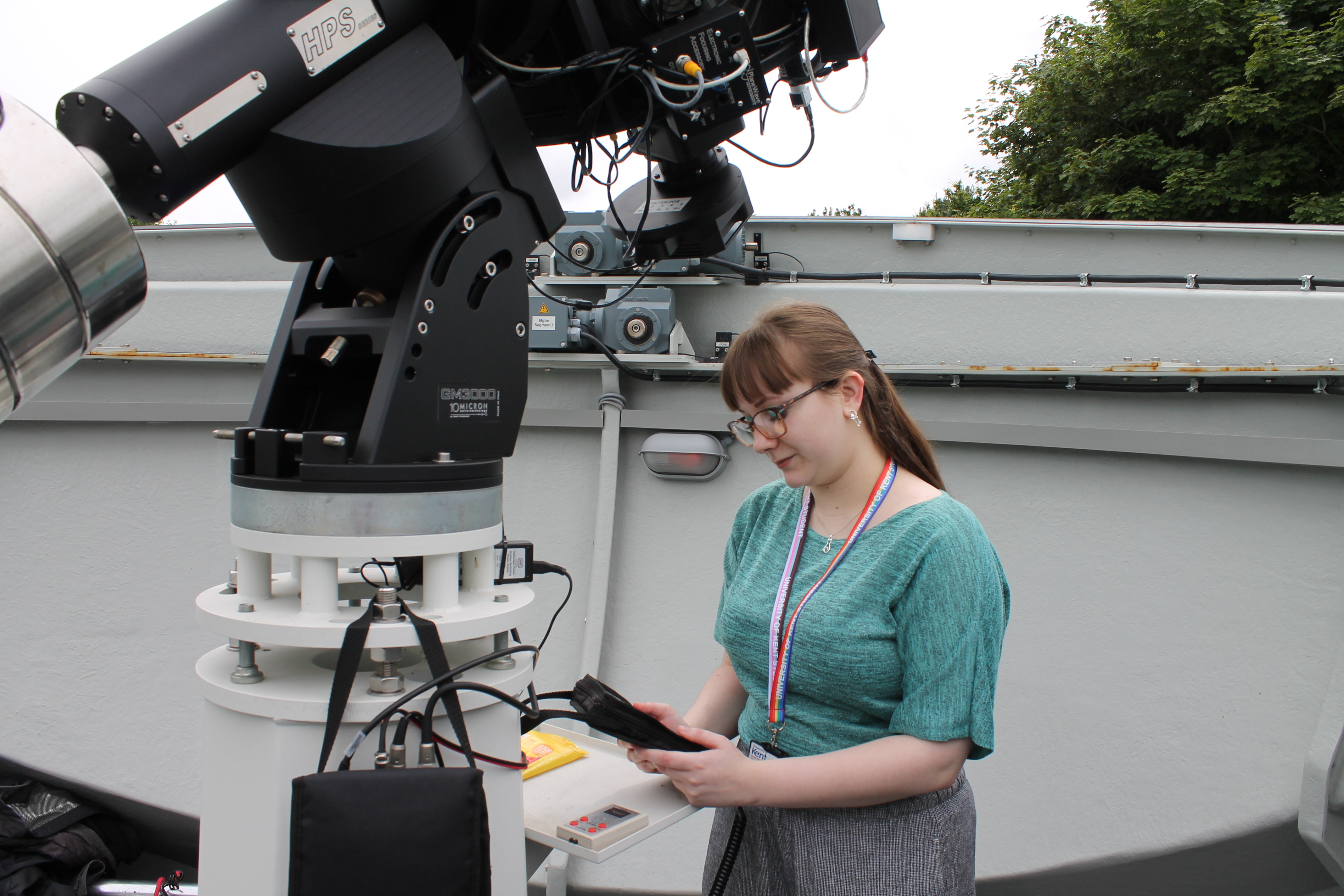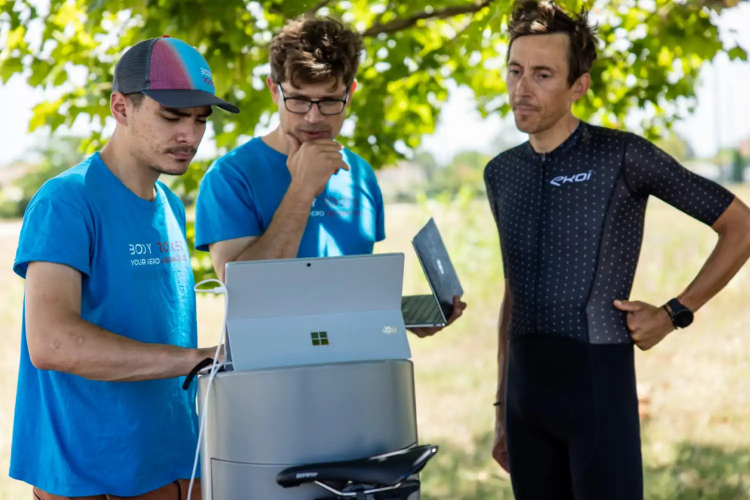Combining his love of science, tech and cycling, Kent PhD student Callum Barnes is revolutionising the way Olympic and everyday cyclists can assess their performance.
Callum started at Kent as a foundation-year Physics student, 4 years later he is studying for a PhD, working with Olympians and presenting at international conferences. It’s been an exciting ride!
A keen cyclist himself, Callum was delighted to secure the opportunity to work with UK-based company Body Rocket. The company had achieved a world first by creating a device that allows direct measurement of a rider’s aerodynamic drag, isolating the rider from the bike by using sensors on the seat, stem post and pedals.
Having spent the summer at Body Rocket, Callum began his PhD at Kent. ‘I first looked at the impact of shuffle (how a cyclist moves in their saddle) on drag and power. I developed my own camera – the ShuffleCam – which uses AI to determine where the rider is on the saddle.’
That was just the beginning though.
All cyclists want to find their optimal position on a bike, the one that gives them the best chance to go as fast as possible; Callum rose to the challenge. ‘I wanted to make it possible for a rider to find their optimal position and track it in real time, while riding.’ Using the rich dataset produced by the Body Rocket system and machine learning, he succeeded, also giving riders the ability to see how well they were maintaining their position and to adapt depending on conditions.
Callum is using the motion capture facilities at Kent to further test his product. As software, it can be downloaded to a phone which means any user can get information on their position without needing specialist equipment, while professional bike fitters can monitor riders from anywhere making it easier for people to get into the sport.
Always alert to changes in tech, Callum has found a way to take advantage of the current boom in Large Language Models such as ChatGPT. ‘AI is changing rapidly which means my work is fast paced and constantly changing. I’m aiming to create an ‘aerodynamics coach’ which will give complete novices access to aerodynamics knowledge tailored to them.
Called the Body Rocket Individualized Artificial Intelligence Network or BRIAiN it is a private chat bot (initially tested on Kent’s supercomputer) that will have foundational knowledge on aerodynamics, bike fit and cycling alongside the ability to analyze the unique data from Body Rocket and from my positional tools, tying my research off with a nice bow and bringing world beating aerodynamic knowledge to everyone!’
PhDs are all about discovery with impact and Callum is keen that his work makes a difference.
‘My hope is that this research will help make athletes faster and more efficient. I’ve already seen this positive impact through my work with Body Rocket athletes such as Kristian Blummenfelt the current Olympic Triathlon World Champion. In March I used some of the technologies I have been developing to help him in the upcoming Paris 2024 Olympics.’
As well as supporting Olympians, in the last two years Callum has been able to share his discoveries at leading international conferences ahead of the world’s premier cycling event, the Tour de France. His ability to analyse, assess and invent, while making the most of the latest technology, is moving him out of the peloton and into the yellow jersey!

